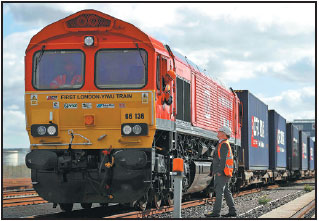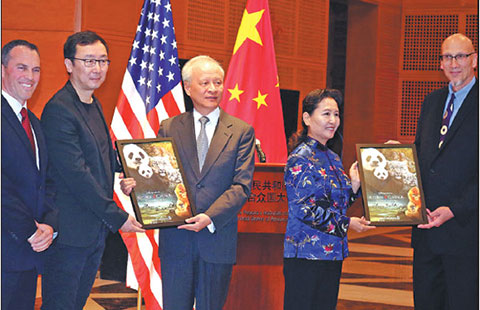History can inspire the future
Barking and Dagenham, one of London's poorest and most neglected boroughs, has found new fame as the most westerly point of China's new Silk Road rail route.
The first train arrived on January 18 after a 12,451-kilometer journey from Yiwu, Zhejiang province, which took in Kazakhstan, Russia, Belarus, Poland, Germany, Belgium and France. It carried goods from China and opportunities for Barking.
The rail route is part of China's Belt and Road Initiative, and Barking is the new terminus.
From 1890 to 1959, the borough was developed from a predominately rural part of Essex into an industrial and residential suburb of London. It is set for more changes as Chinese businesses look to invest in the end of the Silk Road rail line.
Darren Rodwell, leader of Barking and Dagenham Council, highlighted the importance of working alongside Chinese investors as a way of developing the borough and encouraging new growth.
"I'm doing what my predecessors did - developing a pathway for everyone to aspire to. Whether that's Barking and Dagenham residents or friends across the globe, if we have the same vision, then what that does is bring communities together and prevent hatred and misunderstanding," he said.
As well as the benefits for London, Rodwell said Britain also has a lot to offer in return: "The UK is good at arts and crafts, and we're good at innovation and putting that little bit of icing on the cake, so between the two great cultures we are able to come up with great new ways of taking business forward."
Rodwell added that the borough is immersed in history. The suffragette Mary Wollstonecraft came from Barking, and Guy Fawkes left from the borough when he attempted to blow up the Houses of Parliament, he said.
The council leader said the area's history is an inspiration for the future. "The Chinese government is developing these 'silk routes' out of China and it wants to work with partners who feel the same when it comes to respecting the past but also moving forward."
Last week, Sino-Australian group ASF announced plans to develop 15,000 affordable homes in the Castle Green area of Barking, which will help alleviate a shortage of homes.
William Franklin, founder of the China Investors Club, said the investment was significant and could lead to more Chinese finance. "With the Northern Powerhouse attracting attention and investment over the last 12 months from Chinese investors on both a commercial and residential basis, it is tremendous to see plans for East London," he said.
"The Castle Green development is a collaboration with Chinese construction companies, and the investment is very much in line with the 'golden era' of opportunities between the UK and China."
Franklin believes this investment will give other Chinese businesses the confidence to look into Barking and Dagenham as part of the Belt and Road Initiative.
"To build 15,000 homes is great, but it is also about the industrial work that will come along with that as well," he said. "So it is not just about the construction, but also the infrastructure and the ecosystem that will surround it."
According to Steve McCabe, a lecturer in business at Birmingham City Business School, the development has been greeted with enthusiasm: "Anything that can be done to alleviate the extreme housing need, especially affordable housing, is to be welcomed."
|
The first UK-to-China freight train, laden with containers of British goods, seen during an official ceremony to mark its departure from the DP World London Gateway, Stanford-le-Hope, Essex, England, on April 10.Peter Nicholls / Reuters |
(China Daily 04/14/2017 page6)





















